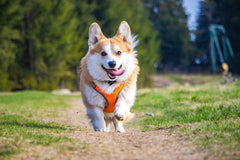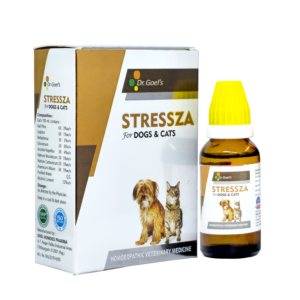
The Adventures of Paw: Understanding and Coping with Travel Anxiety in Pets
Emotions are like an ocean of feelings. They make us feel alive, and sometimes they make us feel at rock bottom. Through this spectrum of emotions, life goes on. Our pets, like humans, experience a wide range of emotions based on ongoing situations and thought processes. Body language is one such method through which pets tend to communicate with us. Apart from the body language, they also try to communicate with us through vocalising, barking, and so on. Body language is a method of communication where words are not needed. It is non-verbal in nature; for dogs and cats, the counterpart of non-verbal communication is non-vocalising communication, wherein no barking, howling, or purring is involved. Instead, posture, tail movements, sniffing, etc. are involved. Pets do try and do communicate with us. They try to communicate in ways that are easily comprehendible, provided that they are heard clearly.
Positive communication involves our pets freely expressing their emotions through barking, nudging their noses against you, wagging their tails, and so on. However, there are certain emotions they may not be able to freely express, such as hurt, sadness, anxiety, and stress. Some pets are friendly and open to expressing what they feel, whereas some pets are timid and introverted and tend to hide away when stressed or anxious. Through today’s blog, let us try to understand what stress looks like in our pets, what the outward manifestations of stress are, and how we can help our pets for the better.
Is My Pet Worried: What Is Stress?
Stress is an emotion that involves feeling tensed, worried, nervous, and scared. Stress as an emotion is expressed by animals as well, although in ways we may not be so familiar with. Stress is the body’s reaction to certain unwanted outward stimuli. It may be due to travelling, a change of location, a change of atmosphere, and so on. However, stress may also be due to certain ailments and disease processes, certain emotional or physical trauma, or certain normal physiological conditions such as pregnancy, lactation, etc. Travelling is frequently stressful for pets. As previously stated, stress is a response, not a disease entity in and of itself. It is simply a type of emotion expressed by pets whenever they feel worried or scared about certain things happening around them.

The Adventures Of Paw: Traveling With Pets Faqs.
Why do pets feel stressed while traveling?
– They may perceive travel as a threat.
-They may have been abandoned by previous owners after travelling via cars, etc.
– They feel vulnerable due to travel sickness.
– Sudden car movements may scare them.
What will you most likely observe?
During car trips, your pet may show signs of stress, such as:
– Panicking.
– Howling.
– Excessively drooling.
– Trying to nudge you.
– Trying to scratch the window or the door.
– Hiding behind someone or trying to hide beneath the car seat.

Post-travel, your pets under stress may exhibit certain signs and symptoms, for example:
– Your pet may refuse food and water.
– They will find a cozy , dark place to hide away.
– Socializing with fellow pets and humans is a big no-no for them.
– They bark or get agitated quickly.
– Tail is tucked away beneath their body.
– Other odd behavioural modifications.
What can you do to help them out: Counteracting the stress?
Stress is inevitable, yes. We may not be able to eliminate it completely, but we can definitely minimise it to the maximum possible limits. Travelling is sometimes necessary, such as when taking your pet to the veterinarian in a car. At such times, you may have to unknowingly put your dogs under stress. While it may be inevitable for you to travel with pets, here are a few things you should keep in mind before undertaking any journey with your furry friend.
– Identify various stressors and stress triggers that you may have observed while travelling.
– Introduce your pets to vehicles early on.
– Sensitize your pets to different modes of travel.
– Prioritize short-distance travel over long-distance travel.
– Comfort your pets during travel.
– Ensure that the driving is smooth, and that sharp movements and turns are avoided.
– During stressful journeys, your pets should have access to any comfort toys or blankets.
Apart from minimising the external stressors, it is important for you to minimise the internal stress levels by providing your pets with a natural and comfortable environment most of the time, as this will help condition their brains and make them feel much more at ease prior to undertaking any journey. Proper diet and nutrition, adequate exercise, bonding, and spending quality time with your pets, apart from various other methods, can help your pet feel good and stress-free. Let us have a quick look at these factors that help boost the vitality of our pets.

We all know the importance of good nutrition for our wellbeing and health. As a matter of fact, many diseases can be kept at bay with good nutritional practices. Good fats, carbohydrates, and proteins, along with a balanced amount of minerals and vitamins, are very essential to build vigour and boost vitality. Vitamins and nutrients help improve energy. Mineral depletion can result in chronic fatigue and depression, which in turn cause depressed immunity, which essentially means vitality is hampered. Zinc, magnesium, calcium, and iron are some of the important minerals useful in building vitality. Certain vitamins, like the B-complex vitamins, are well-known for their role in boosting energy. Some other vitamins, such as vitamins C and E and vitamin D, are also extremely helpful. Certain varieties of plants or herbs are also helpful in boosting vitality; for example, Basil [Hindi- Tulsi], and Curcumin [Hindi-Haldi] have a similarly wide range of health benefits.
Exercise is a great way to help your pets build immunity and is a great way to relieve stress naturally. A series of regular exercises enhances the immune response. However, it’s important to note here that overexertion or strenuous exercise results in oxidative damage to the cells and will have a backfire effect, increasing the susceptibility to infections. Anything in excess is harmful; therefore, regular walks and regular exercise are important. Consistency is the key. Remember, the quality of exercise is much more important than the quantity of exercise. Also, not every pet will want to play when in stress, and not every dog will have the same levels of exercise needs. Pay attention to how your pet reacts and how you can help them.
Here’s what you can do:
1. Daily walks, 2-4 times per day, to refresh them and give them relief from holding their bladder.
2. Playing with balls or toys
3. Running in the backyard.
4. Going on hikes or a short jog.
5. Toys and play area for puppies and kittens
Sleep or rest is extremely important as it helps with cognition, concentration, productivity, energy conservation, modulation of immune responses, performance, vigilance, disease, and psychological well-being. Sleep plays an important role in your physical health as well. Sleep is involved in the healing and repairing processes. Sleep is also an essential factor for boosting the immune system.
Bonding is the process of developing a close, interpersonal relationship. Bonding and connecting with your pet helps establish a sense of trust and love that will make them feel comfortable and at ease despite the stressful environment outside.
It helps boost the vitality of your pet as it improves mental and psychological well-being, which in turn improves the physical well-being of your pet. Connecting and bonding are thus crucial for building vitality. You can connect and bond with your pets by doing various activities such as playing fetch, going on hikes or short walks, talking to them, praising them, and spending some quality time with them. This process helps your dog feel refreshed and energetic.
Once every 8–12 months, it’s good to practice taking your furry friend to the veterinarian for a thorough check-up. Your vet will scan your pets for the presence of any ailments or physical diseases. To ensure your pet’s health, your veterinarian may recommend routine blood work and fecal tests. They may also suggest grooming at timely intervals [like nail trimming, baths, and ear cleaning].
It is good practice to follow the deworming schedule as prescribed by your veterinarian. Generally, adults are dewormed once every 3–4 months, as this prevents the scope for any endoparasitic infections such as tapeworms, roundworms, etc. We must adhere to this yearly vaccination schedule in order to avoid many of the most well-known diseases, such as gastrointestinal infections.

Knocking The Doors Down: Combating Stress
Stress, although inevitable, can be effectively managed through proper channelling and understanding the demands of your pets at the earliest possible time by removing the stressors and understanding the patterns.
Homeopathic medicine (STRESSZA for pets is an excellent remedy for treating anxiety, stress, and other problems. Symptoms such as scratching, barking, snapping unnecessarily, etc. can be due to anxiety and stress. Anxiety and stress are expressed in various ways. Some may show a violent reaction, while others may end up becoming more timid and quiet than usual. Keep an eye out for such subtle changes in body language and behaviour. This homoeopathic medicine helps your pet relieve stress and calm their anxiety. One such supplement that complements Stressza is ME & MY Vitality for pets experiencing extreme lassitude (inactivity), depression, nervousness, irritability, and other related symptoms. It aids in the improvement of the pet’s liver function and digestive system and is designed specifically for dogs and cats of all ages to always keep them active and vital.
HOMEOPATHIC SOLUTION FOR STRESS AND ANXIETY
STRESSZA FOR PETS STRESS AND ANXIETY
STRESSZA for pets is an excellent remedy for treating Anxiety, Stress, and Canine Distemper. When your fur baby is unanimously scratching, barking, hiding behind, feeling anxious, eating nothing, even sometimes behaving wild or attacking unknowingly, etc. these all symptoms may be due to Anxiety and Stress or due to various causes of Canine Distemper. We have the best solution to all your problems, We have STRESSZA is a unique homeopathic veterinary formulation to relieve stress in pets.
Stressza for pets works for Stress due to Traveling, Crackers in Festive Season, Fighting with stray dogs, Home alone, Visiting Hospital for Vaccination, etc.
ME & MY VITALITY SUPPLEMENT FOR STRESS & ANXIETY
This is a unique supplement for pets experiencing extreme lassitude (inactiveness), depression, nervousness, irritability, hysterical behavior, night terror, insomnia, and other related symptoms.
Must Read:










